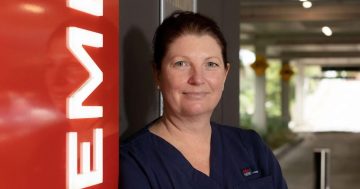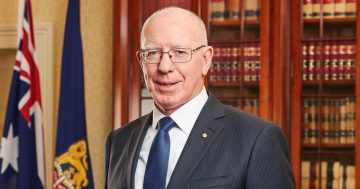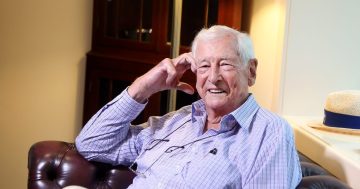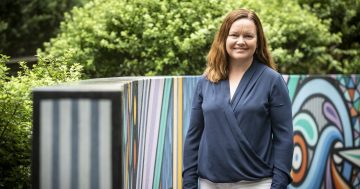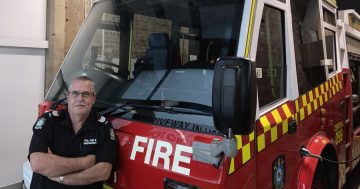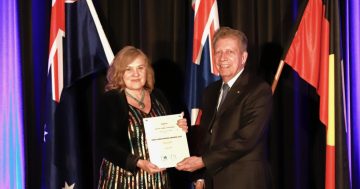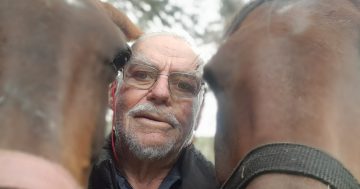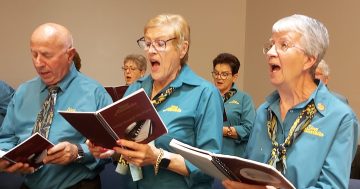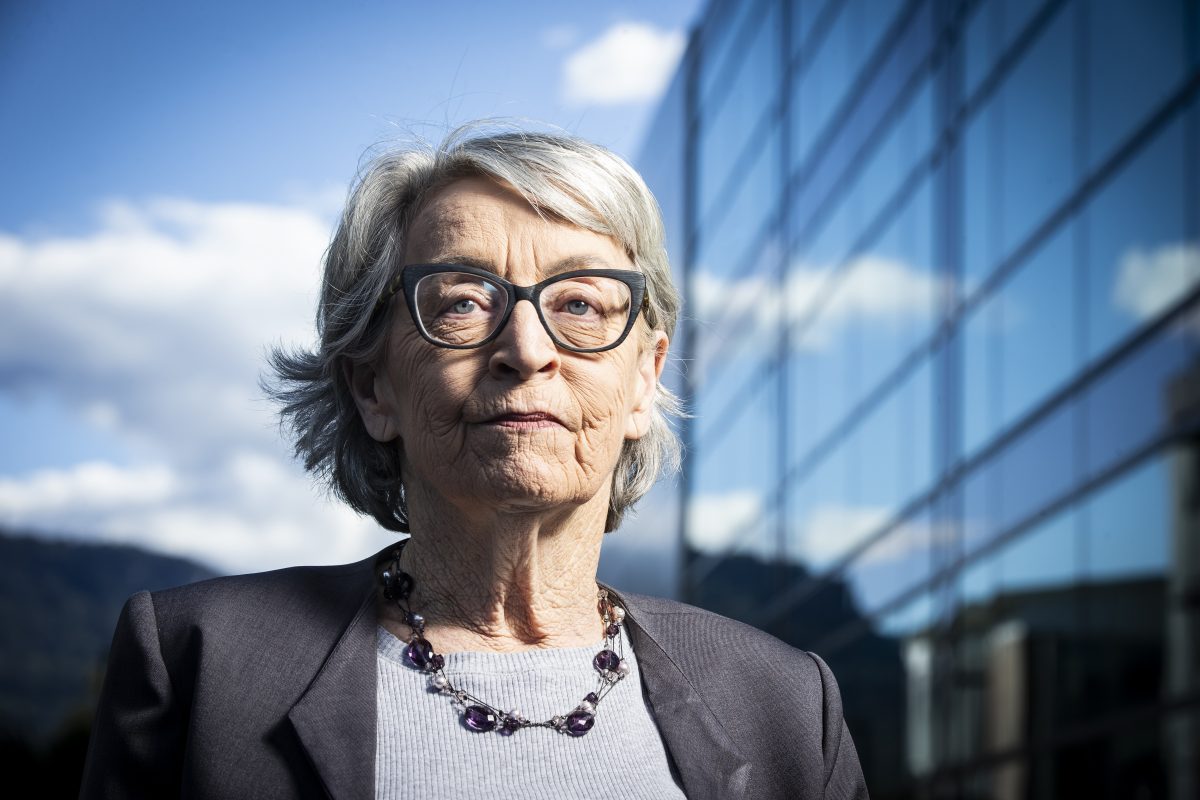
Dr Eagar was made a Member of the Order of Australia (AM) in the General Division. Photo: Paul Jones/UOW.
Research is Wombarra woman Kathy Eagar’s third career, but it’s her first two careers – as a clinician, then manager in the health space – that informed her hyper-practical style.
“I’ve always believed you can’t do research sitting in an ivory tower and making up ideas,” she says.
“When I was a manager, people would come in and say ‘I need a hydrotherapy pool’ or ‘I need a certain machine’ and I would say ‘What’s the evidence that this device would provide better outcomes for patients?'” People rarely had an answer and I thought, I’m at the point in my career where if I can’t get the evidence, I should research it myself.
“I didn’t want to do pure research led by other academics – I wanted to do work that had an impact in the real world.”
So began a decades-long third career of health services research – not to be confused with straight-up health research, she points out.
“It looks at how our actual health systems work, and how we can improve them. That reaches beyond health and into our aged care system,” she says.
Dr Eagar is currently an Adjunct Professor at the University of New South Wales and Queensland University of Technology, but much of her research work took place at the University of Wollongong, where she was a Professor of Health Services Research and the Director of the Australian Health Services Research Institute from 1998 to 2023. During that time she also founded the Palliative Care Outcomes Collaboration.
Among her various health services roles, she was the Assistant Regional Director for the Department of Health NSW’s Western Metropolitan Health Region from 1985 to 1988, Director of the Illawarra Area Health Service Development department from 1988 to 1994 and a Board Member of the Illawarra Shoalhaven Health District from 2010 to 2020.
For Dr Eagar, more recent career highlights include leading the establishment of four national outcome centres to systematically measure outcomes for patients receiving care in the Australian health system.
She was also the lead designer for the new national funding model for aged care in Australia and the lead researcher on a project that led to the introduction of new staff and nursing ratios and mandated staff time in the aged care sector.
“That’s a big achievement for me in aged care and one that I’m particularly proud of,” she says.
“I’ve had a long history of co-designing research programs with the people those programs impact. So in these projects, I engaged and collaborated with people from the health sector – clinicians, managers and also patients.”
This ethos, Dr Eagar hopes to carry into the next phase of her career – mentoring the next generation of academics.
“I will be encouraging them to take a more applied approach to their work, rather than theoretical,” she says.
“I also see myself using research evidence to advocate for our most vulnerable people. That is, better care and better mental health for older people, people with disability and First Nations people.”
For significant service to the community through health services research and development and as a mentor, Dr Eagar earned a place as a Member of the Order of Australia (AM) in the General Division.
It joins a list of other accolades that includes the 2022 Australia Day Award from Wollongong City Council and the 2021 Inaugural First Nations Health, Wellbeing and Health Services Research Award from the Health Services Research Association of Australia and New Zealand.
Dr Eagar said being made a Member of the Order of Australia was an unexpected honour, but was quick to acknowledge that it reflected on the many people she had worked with over the decades.
“It’s recognition of the work my teams have done with me over 25 years,” she says.









